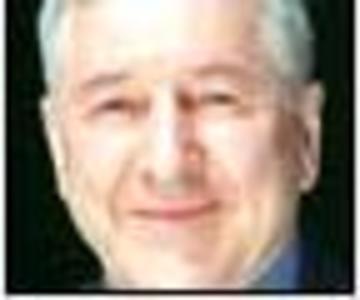No, it's not possible. Can the federal Liberals have plunged so low in their once impregnable Quebec fortress? Some finger Stéphane Dion. Others smell poison lingering from the sponsorship scandal. But another factor, more fundamental, goes ignored: "the compact between the two founding peoples."
Brian Mulroney described it in his senior-college-year essay, according to his biographer, L. Ian MacDonald: "To the French, [Confederation] is a pact between French and English, which guarantees each group an equal right to its own faith, language, laws and customs." In fact, this compact theory is a myth. It was first enunciated in 1904 by nationalist icon Henri Bourassa; its progression is traced by political scientist Stéphane Paquin in his 1999 book, [L'invention d'un mythe: Le pacte entre deux peuples fondateurs.->archives/identite/paquinpacte.html]
Soon taken up by nationalist historian Lionel Groulx, this invention spread among historians, then politicians. By the 1950s, it was articulated as the foundational fact of Canada by a royal commission launched by Maurice Duplessis. It's been the doctrine of every Quebec premier since, turning into an axiom, a historic grievance and a vision for reconstructing Canada. And every premier's duty is to rewrite the Constitution to make Quebec as equal as possible to English Canada.
Jean Lesage: "Today's Quebec must possess and control ... the economic, social, administrative and political levers that will enable it to realize its legitimate aspirations as an adult people." Daniel Johnson Sr. threw down an ultimatum: "Égalité ou indépendence." Under Claude Ryan, the Quebec Liberal Party published its constitutional policy, Une nouvelle fédération canadienne: "This reform aims above all at inscribing in the fundamental law of Canada the principle of the equality of the two peoples that founded modern Canada."
That included the right to secede at will, the abolition of the Senate, the transfer of all residual powers to the provinces and the repeal of the federal power "to make laws for the peace, order and good government of Canada." Such was the constitutional policy on which Robert Bourassa's Liberals were elected in 1985.
But the platform cautioned: "The current context is not favourable to a comprehensive reform of Canadian federalism. And so we must adopt a pragmatic approach and proceed in stages." And so Mr. Bourassa put forward five conditions for recognizing that Quebec was bound by the 1982 Constitution Act. Meech Lake was only to set the stage for later, as Mr. Bourassa's justice minister signalled, "the Quebec government wanted to establish on a solid basis the foundations of a comprehensive constitutional reform to come in a second stage of negotiations."
The "two founding peoples" doctrine clashed with the political culture of Canada. And so a constant tug of war emerged as Quebeckers voted simultaneously for politicians in Ottawa and Quebec City who were at odds with each other. Mr. Duplessis fought with Louis St. Laurent, Lester Pearson with Mr. Lesage, Pierre Trudeau with Daniel Johnson Sr., with Mr. Bourassa and René Lévesque. And this paradox was an accepted part of Quebec's political culture. The political class pushed for two founding peoples, and ordinary Quebeckers kept voting Liberal federally.
Mr. Trudeau patriated the Constitution against the Péquiste majority in the National Assembly, but all remained quiet. Polls showed support for secession dropping between 1980 and 1987, the year of Meech Lake. But everything changed after Mr. Mulroney thundered against patriation - and so the Constitution - as leaving Quebec betrayed, humiliated, isolated. The magician's conjuring proved so effective that ordinary Quebeckers converted to his view that the federal Liberals were guilty of high lèse-Québec.
Eventually, Mr. Mulroney and his Conservatives were discredited across Canada. But, instead of turning back to the Liberals, Quebeckers drew the logical conclusion of Mr. Mulroney's revisionism and voted for the Bloc Québécois.
The rest of the country turned the page on the Mulroney era after Stephen Harper reunified the Canadian Alliance and the Progressive Conservatives. But, in Quebec, his influence lives on.
Quebeckers had accepted patriation, had accepted Mr. Trudeau's rejection of "two founding peoples," of special status, "distinct society," and his refusal in 1980 to be bound by the results of the referendum on sovereignty-association. But now, thanks to Mr. Mulroney, the Liberals are distrusted in Quebec, and Stéphane Dion is spurned for his Plan B and the Clarity Act.
Quebec will fit uneasily in the federation so long as it is governed by the myth of the two founding peoples.
***
WILLIAM JOHNSON
Author and a former president of Alliance Quebec
Why Quebec is spurning Dion: the compact myth
Quebec will fit uneasily in the federation so long as it is governed by the myth of the two founding peoples
Dion-le-fossoyeur

William Johnson53 articles
William Johnson, a Quebec journalist, is a former president of Alliance Quebec






















Laissez un commentaire Votre adresse courriel ne sera pas publiée.
Veuillez vous connecter afin de laisser un commentaire.
Aucun commentaire trouvé